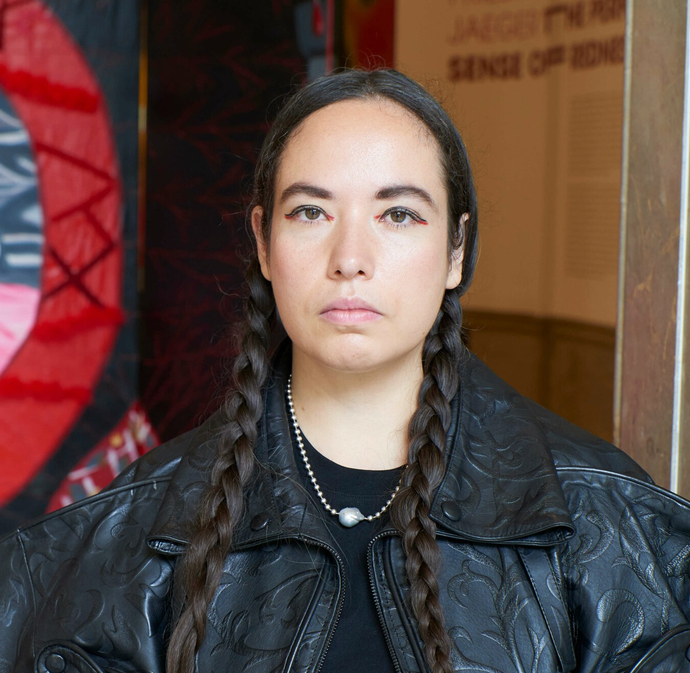
Frieda Toranzo Jaeger
Frieda Toranzo Jaeger employs painting as a means to delve into concepts of hybridity, sexuality, and autonomy.
Biography of Frieda Toranzo Jaeger
Frieda Toranzo Jaeger was born in 1988 in the vibrant city of Mexico City, where she currently lives and crafts her masterpieces. After completing a Bachelor of Arts in Fine Art at the Hochschule für Bildende Künste (HFBK) in Hamburg, Toranzo Jaeger continued her studies with a Master of Fine Arts at the same institution.
In her remarkable 2019 solo exhibition, "Deep Adaptation," hosted at Galerie Barbara Weiss, Toranzo Jaeger unveiled a series of 12 oil paintings. Among them, several paintings portrayed electric cars from unconventional perspectives, such as looking above or into an empty interior, intimately tied to the proportions and spaces of the human body. These dreamlike depictions of sleek technological advancement, achieved through the use of hinged and folding canvases, mirrored the vehicles themselves, opening and closing in a choreography of their own.
Beyond the canvas, Toranzo Jaeger's artistic expression extends into installations and performances. During her residency at Callie's in 2019, she crafted the installation "...And yet we are becoming" for the KW Institute for Contemporary Art. This marked her first official performance commission, featuring a large three-dimensional artwork that blurred the lines between painting, sculpture, and stage.
Frieda Toranzo Jaeger's Art Style
For Toranzo Jaeger, painting is not merely a skill or a showcase of virtuosity, it is a conceptual and political journey. Her recent works delve into the realms of technological innovation, specifically focusing on the automobile – an emblem historically associated with everyday alienation, speed, and violence. Her fascination with machines originated during her deep dive into postcolonial theory while writing her thesis. The electric car, in particular, caught her attention, and she perceived it as inherently feminine, diverging from its gas-powered counterpart. Linked to the late-capitalist dreams of technological liberation, the driverless car appeared to encapsulate the improbable fusion of socialist utopian ideals within a capitalist structure.
What sets Toranzo Jaeger's work apart is the infusion of traditional Mexican Aboriginal techniques into her paintings. The artist, along with her family, practices these techniques, and the motifs are embroidered onto the canvas. This intricate embroidery is a deliberate act of what Toranzo Jaeger terms "epistemological disobedience against painting," adding layers of cultural depth to her already rich and multifaceted creations.
Years:
Born in 1988
Country:
Mexico, Mexico City
Gallery: